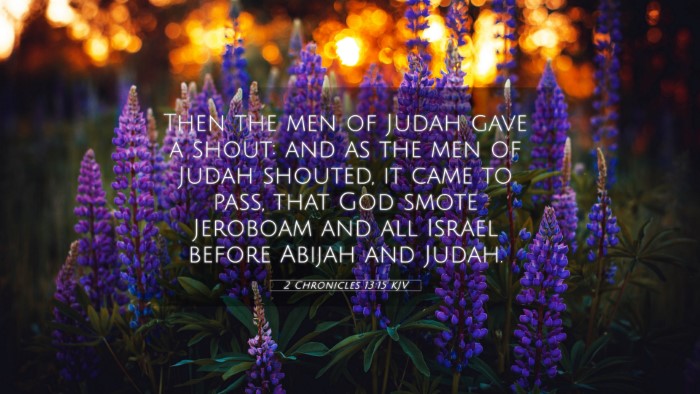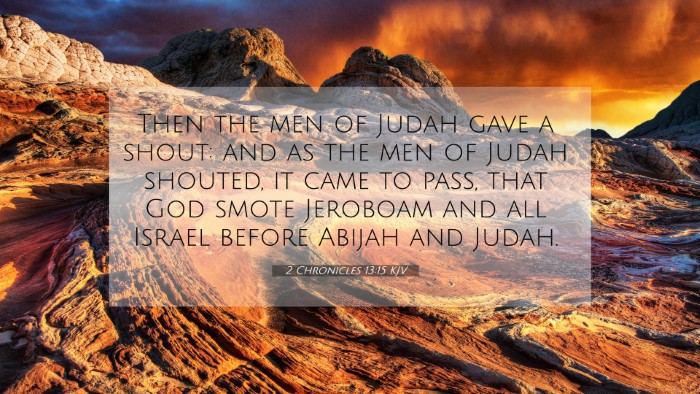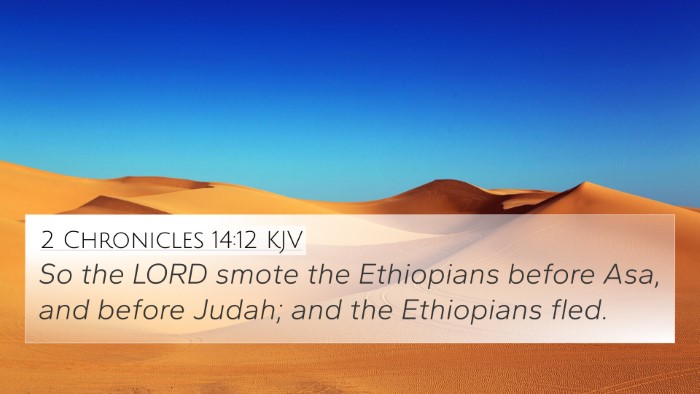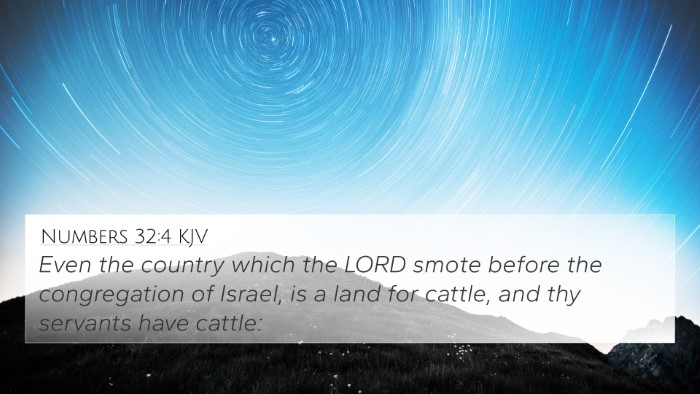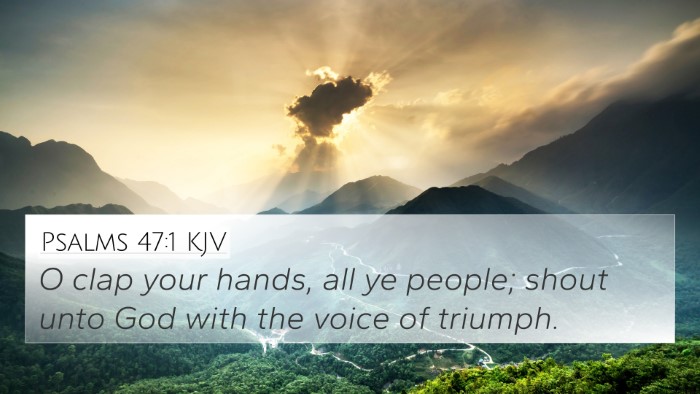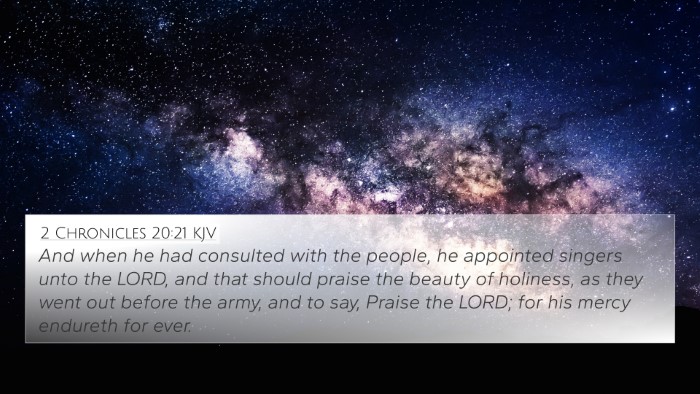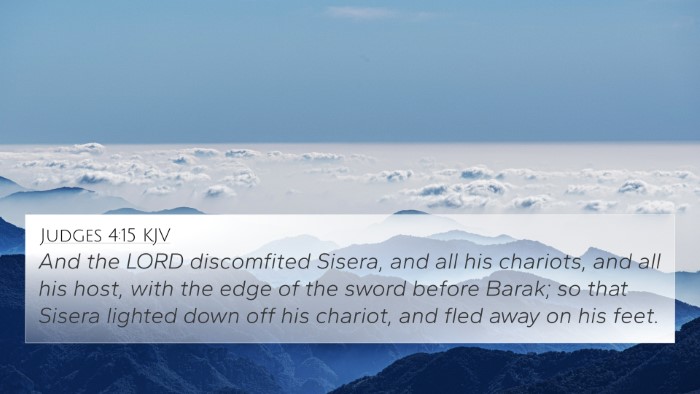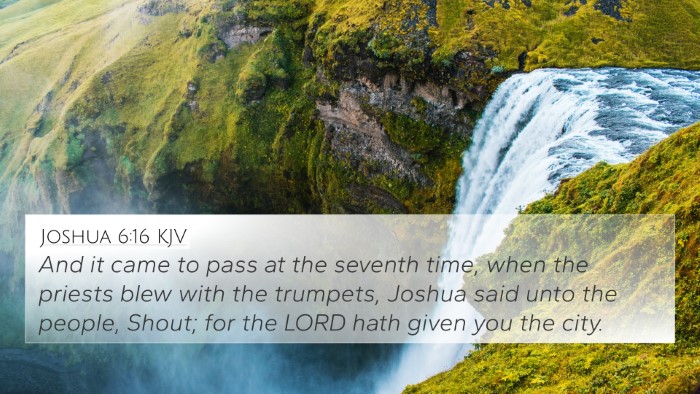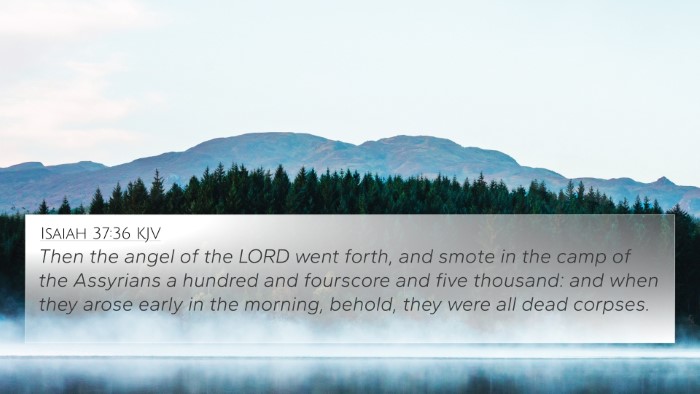Understanding 2 Chronicles 13:15
Verse: "Then the men of Judah gave a shout: and as the men of Judah shouted, it came to pass that God smote Jeroboam and all Israel before Abijah and Judah."
Summary of the Meaning
This verse captures a pivotal moment in the conflict between Abijah, the king of Judah, and Jeroboam, the king of Israel. The shouting of the men of Judah signifies their trust and faith in God, while God's intervention demonstrates His sovereignty and support for Abijah. The verse illustrates the theme of divine assistance in times of hardship, showing how fervent cries to the Lord can lead to miraculous interventions.
Insights from Commentaries
- Matthew Henry: Henry emphasizes the importance of unity among the tribe of Judah. He explains that their collective shout was not just a war cry, but an invocation of God’s presence and power in their battle. The victory was attributed directly to God's intervention rather than merely military might.
- Albert Barnes: Barnes notes that this event is a reflection of the broader struggle between the faithful and the unfaithful. He interprets the shouting as an expression of faith, suggesting that it is crucial for God's people to boldly proclaim their beliefs and trust in God's protection in the face of opposition.
- Adam Clarke: Clarke sees this verse as an example of God's justice and providence. He points out that the shout of Judah was not only a rallying cry but also a form of spiritual warfare, arguing that their faith in God was what ultimately led to their victory in battle.
Cross-References
This verse connects powerfully with several other scripture passages that illustrate themes of divine assistance, faith, and the consequences of leadership decisions:
- 1 Samuel 17:47: "And all this assembly shall know that the LORD saveth not with sword and spear: for the battle is the LORD's, and he will give you into our hands." - This emphasizes God’s role in battle outcomes.
- 2 Chronicles 20:15: "And he said, Hearken ye, all Judah, and ye inhabitants of Jerusalem, and thou king Jehoshaphat; Thus saith the LORD unto you, Be not afraid nor dismayed by reason of this great multitude; for the battle is not yours, but God's." - A clear reminder of God's sovereignty in battles.
- Psalm 44:3: "For they got not the land in possession by their own sword, neither did their own arm save them: but thy right hand, and thine arm, and the light of thy countenance, because thou hadst a favor unto them." - Similar affirmation of God’s deliverance.
- Romans 8:31: "What shall we then say to these things? If God be for us, who can be against us?" - This encapsulates the trust in God's support from a New Testament perspective.
- Isaiah 54:17: "No weapon that is formed against thee shall prosper; and every tongue that shall rise against thee in judgment thou shalt condemn." - A reminder of God’s protection over His people.
- Hebrews 11:32-34: "And what shall I more say? For the time would fail me to tell of Gideon, and of Barak, and of Samson, and of Jephthae; of David also, and Samuel, and of the prophets: who through faith subdued kingdoms, wrought righteousness, obtained promises, stopped the mouths of lions..." - Highlights the power of faith leading to victories.
- Psalms 47:1: "O clap your hands, all ye people; shout unto God with the voice of triumph." - Celebratory and faith-filled shouts in worship could lead to divine intervention.
Connections Between Bible Verses
The shouting of Judah finds parallels in various moments throughout the Bible where God's people call out in faith, leading to divine actions. The examples illustrate a pattern where collective faith and unity draw God's attention and favor during challenging times.
Thematic Connections
The themes of unity in prayer and the acknowledgement of God's sovereignty permeate the narratives of both the Old and New Testaments. The connections between 2 Chronicles 13:15 and other verses reinforce a Biblical narrative where reliance on divine power supersedes reliance on human strength.
Conclusion
2 Chronicles 13:15 serves as a reminder of the power of faith, unity, and God's providence in battles, both literal and spiritual. The verse encourages believers to rely on God's might and to express their faith vocally, much like the men of Judah did. This form of spiritual acknowledgment is supported across various scriptures, creating a rich tapestry of inter-Biblical dialogue that encourages further study and reflection.
Further Study and Reflection
For those wishing to explore this theme deeper, consider how other passages resonate with this message. Utilize tools like a Bible concordance or a Bible cross-reference guide to uncover further links between these verses in your personal study.

